Top 10 Foods to Lower Your Blood Sugar Levels
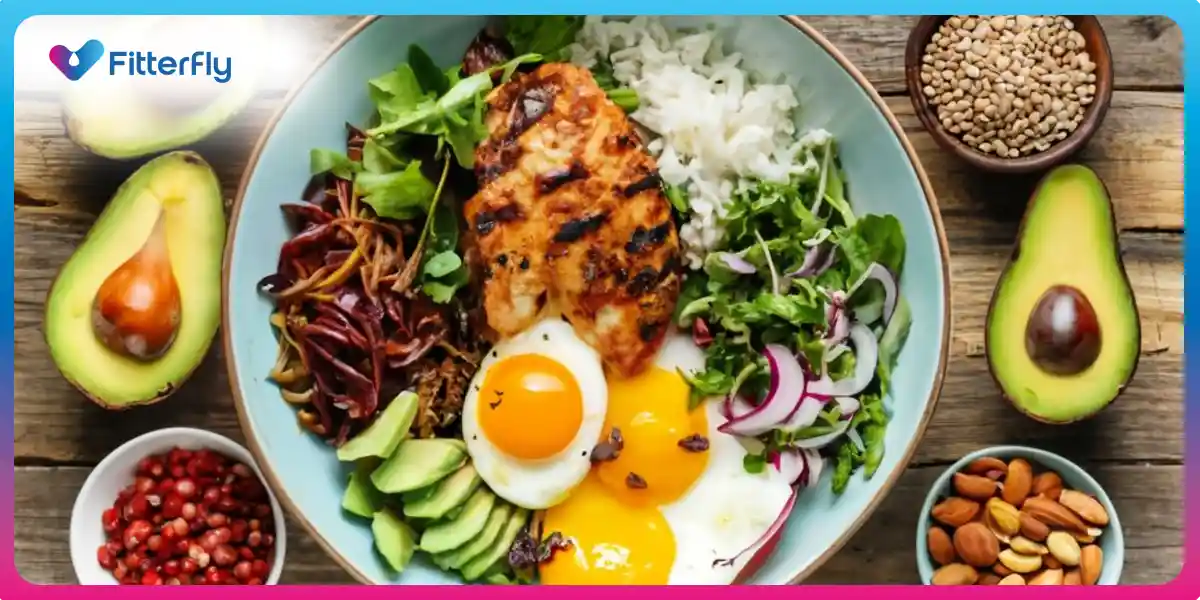
Are you looking for magical foods that may help lower blood sugar levels? Well, you may be a tad bit disappointed to know such foods do not exist.
Eating food always causes a spike in blood sugar levels and no food can reduce it. However, depending upon the type of food you choose, some of them cause a slight rise in blood sugar levels.
These foods have a low glycemic index (GI) and for this reason, are recommended for people with chronic conditions like diabetes.
Here are 10 foods that help lower blood sugar!
10 Foods That Don’t Spike Blood Sugar Levels
1. Nuts
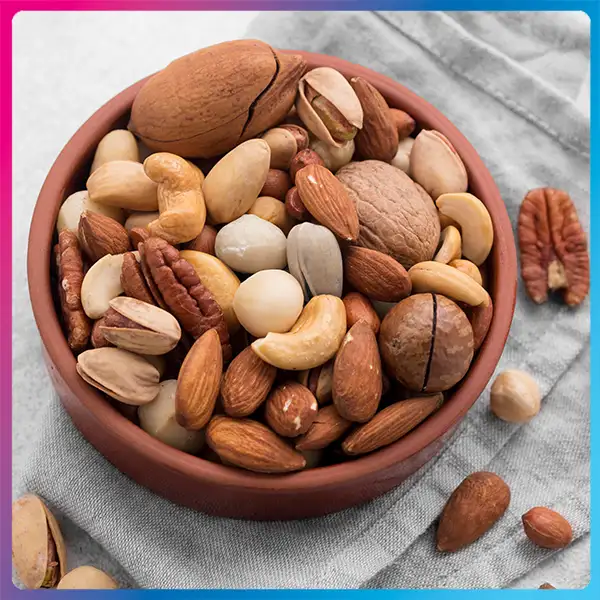
Nutritional benefits
Several studies have shown that consumption of nuts (like cashews, walnuts, almonds & peanuts, etc) may help prevent and better manage type 2 diabetes. This is due to their high fibre content and low glycemic index. Other nutrients present in nuts that prevent a spike in blood sugar levels include:
- Unsaturated fatty acids
- Vitamin E
- Magnesium
- Selenium
- Bioactive compounds like phenolic acids, flavonoids, lignans and other polyphenols
How to include nuts in your diet?
- Eat a handful of mixed nuts (20 g of mixed nuts)
- Poha
- Upma
- Gravies
2. Seeds


Nutritional benefits
Just like nuts, seeds (like flaxseeds, chia seeds, sesame seeds & sunflower seeds, etc.) are excellent for people with diabetes due to their low glycemic index. They are rich in nutrients like:
- Omega-3 fatty acids and other healthy fats
- Proteins
- Fibre
- Potassium
- Calcium
- Iron
- Zinc
- Vitamins B1, B2, B3
- Vitamin E
How to include seeds in your diet?
- Add in yogurt/dahi
- Add a few tablespoons of seed flour to your regular whole-grain roti/chapati flour (atta)
- You can add Pesto paste* to add to whole wheat pasta preparations
- In salads
- Topping over cut fruits
*Pesto paste is a blend of fresh basil, garlic, pine nuts, extra-virgin olive oil, and cheese.
3. Eggs
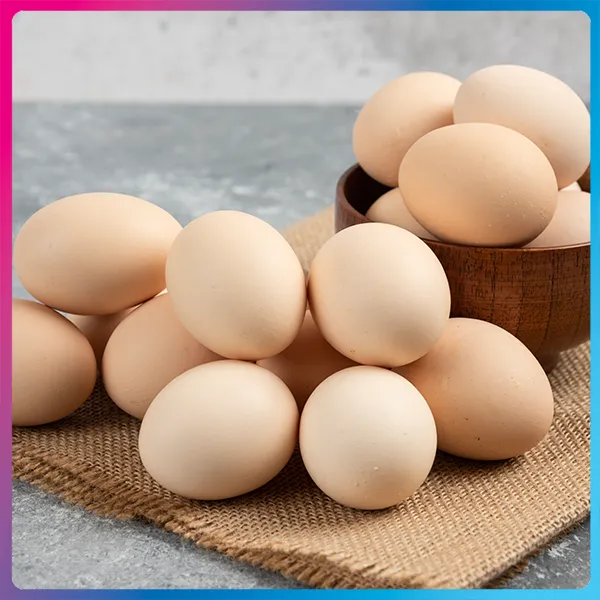

Nutritional benefits
Eggs do not have carbs in them and, hence, do not cause a spike in blood sugar levels. They are rich in nutrients like:
- Proteins
- Folates
- Vitamin B5, B7
- Retinol
How to include eggs in your diet?
- Vegetable omlette prepared in low-fat oil
- Egg curry
- Scrambled eggs without adding cream, cheese or butter
- Boiled egg for breakfast or part of a salad
4. Salads
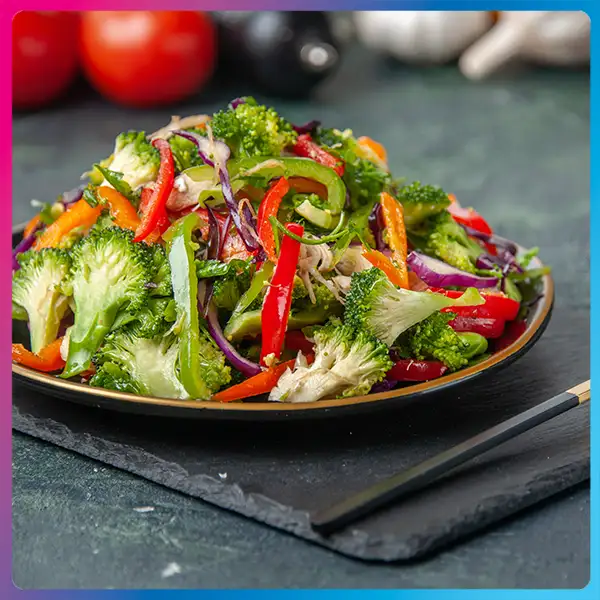

Salads prepared using fresh vegetables and high-protein foods like chicken and eggs are excellent for people with diabetes. These foods are low in glycemic index and do not cause a spike in blood glucose levels.
However, you must always prepare a salad without sweeteners, excess salt, salad dressings containing preservatives, or excess oil.
To know your chances of Diabetes reversal, take the Diabetes Reversal TestDiabetes Reversal
Calculator
5. Non-Starchy Soups
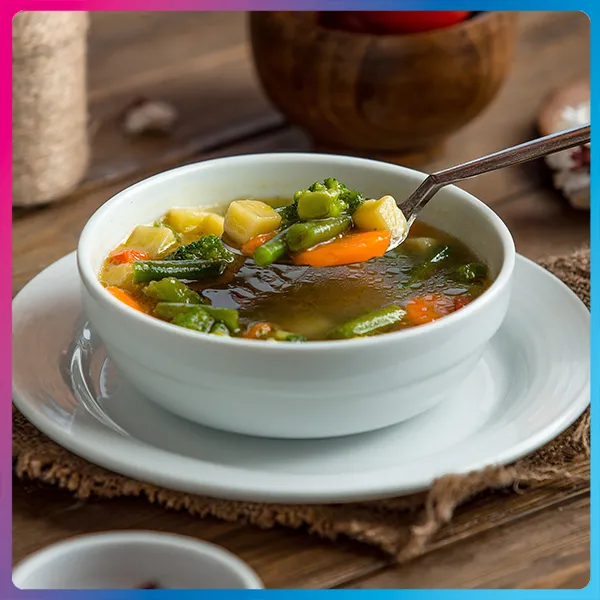

Non-starchy vegetables like cabbage, cauliflower, mushrooms, spinach, and tomatoes make excellent soup ingredients. They are high in nutrients like vitamins, minerals, and dietary fibre and low in glycemic index.
For this reason, they do not spike blood sugar levels. If you wish to keep these non-starchy soups low in calories, avoid adding sugar, other sweeteners, excess fats, corn starch, or maida while preparing them.
6. Chicken (plain without bread or roti)


Nutritional benefits
Chicken is rich in protein, niacin (B3), biotin (B7), folate, retinol, and vitamin E. It is also rich in minerals like iron, calcium, magnesium, phosphorous, potassium, and selenium and moderately rich in sodium.
How to include chicken in your diet?
- Chicken curry
- Baked chicken breast
- Stir fry with veggies
- Chicken fried rice with a mix of vegetables
It is best to consume chicken without bread or roti to prevent it from spiking blood sugar levels.
7. Sprouts
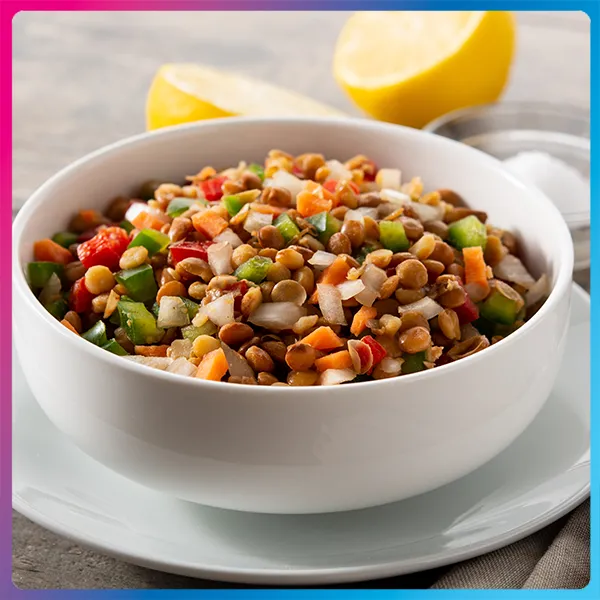

Nutritional benefits
Sprouts are routinely used in Indian cooking and for good reason. These tiny microgreens are rich in proteins, fibre and minerals like iron, zinc and magnesium. They also contain vitamins B and C and high concentration of antioxidants.
How to include sprouts in your diet?
- Steamed sprouts chat without farsan or sev
- Stir fry with lemon juice, jeera tadka/curry leaves
- Serve as a salads
8. Mushroom
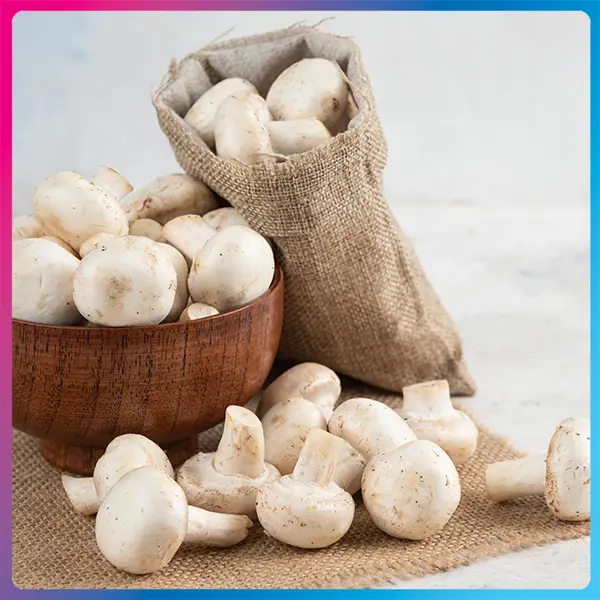

Nutritional benefits
Mushrooms are rich in nutrients like B vitamins (especially folates), minerals like copper, potassium, phosphorous, and selenium. They are a rich vegetarian source of vitamin D.
How to include mushrooms in your diet?
- In soups without sweetener, cream or corn flour
- Stir fry mushrooms with onion, capsicum, or tomatoes
- Mix veg curries
- Grilled mushroom
9. Avocado
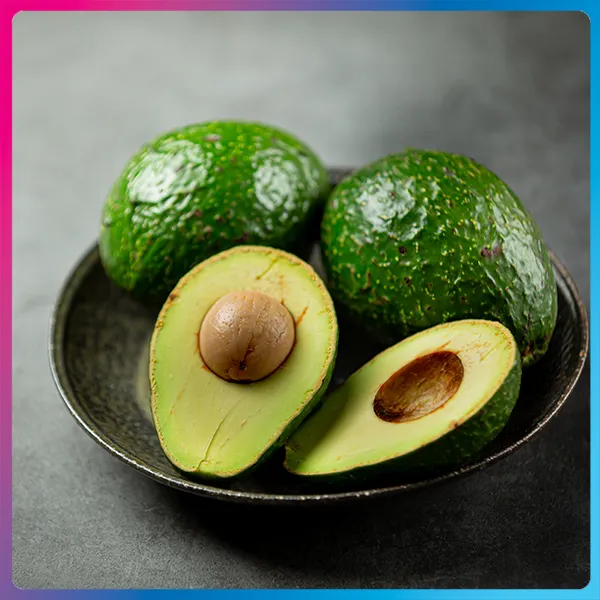

Nutritional benefits
Though not Indian in origin, avocados have become increasingly popular in our country today. They are versatile, and you can use them over Mexican dishes or in healthy foods like salads.
Nutrients present in avocados make them popular among weight-conscious individuals and those living with chronic conditions like type 2 diabetes. These include healthy fats, dietary fiber, B vitamins, vitamins C, E, and K, folate, potassium, carotenoids, beta carotene, and magnesium.
How to include avocado in your diet?
- Salads
- Guacamole whole wheat toast
- Add in raita
- As a dip
- As avocado chutney
- Mix in your paratha batter
10. Fish


Nutritional benefits
Fish (all varieties) do not contain carbohydrates and, hence, do not cause a spike in blood glucose if eaten alone. For this reason, they do not cause a spike in blood sugar levels.
Most fishes contain healthy fats (omega-3 fatty acids), vitamins D and B2, and minerals like calcium, iron, zinc, iodine and magnesium.
How to include fish in your diet?
- Pan-fried fish with vegetables
- Fish curry
- Steamed fish dishes
- Along with vegetables in salad
FitterTake
While grains form the staple or foundational food in our diet, they are high in starch and cause a spike in blood sugar levels. Foods that spike blood sugar levels are not recommended for people with diabetes, prediabetes or insulin resistance.
Need help creating a diet plan to manage your blood sugar levels? Consult a dietician today. To learn more, speak to us or simply give us a missed call at 08068507599, and we will reach out to you.
For better blood sugar and diabetes management, sign up for Fitterfly’s Diabetes Remission Program today!
Reduced diabetes medications in 3 months


Happy members
EMI
Guarantee
4.8/5
Diabetes Prime Program
This blog provides general information for educational and informational purposes only and shouldn't be seen as professional advice.
Frequently Asked Questions
Why is it important to focus on foods that reduce blood sugar levels?
Consuming foods that are high in sugar cause a spike in blood glucose levels. Doing so over a period of time results in the development of insulin resistance and eventually type 2 diabetes. Consuming sugar-rich foods also causes other chronic conditions like obesity.
How do foods contribute to blood sugar regulation?
Blood sugar levels rise after eating food. When you eat food, it is digested and is absorbed by blood. Consuming foods rich in starch and other carbohydrates causes a rise in blood glucose levels.
What are the key nutrients in foods that aid in reducing blood sugar?
Proteins, fibre and healthy fats are three components in food that prevent a spike in blood sugar levels. These components also help lower blood sugar levels.
How quickly can dietary changes impact blood sugar levels?
Bringing down your blood sugar levels is not easy. If you follow a healthy diet recommended by a dietician, exercise regularly, sleep well and manage your stress, you can see your blood glucose levels drop in as early as two to three weeks. However, this varies for every individual and so, always listen to your doctor’s advice.
Are there any potential side effects or considerations when focusing on these foods?
Eating low glycemic index foods is healthy and recommended for people with diabetes. They are safe and usually do not cause any side effects.
What nuts and seeds are recommended for blood sugar control?
While nuts are seeds are healthy and recommended for blood sugar control, some nuts and seeds are better than the rest.
Why are whole grains beneficial for reducing blood sugar levels?
Whole grains can cause a rise in blood sugar levels. However, since they have a low glycemic index, they do not affect blood sugar levels as quickly as other carbohydrates.
Can legumes be included in a diet for better blood sugar management?
Legumes are low glycemic index foods and therefore, do not significantly increase blood sugar levels. A high intake of plant-based foods, including legumes, can help in better management of blood sugar levels.




















